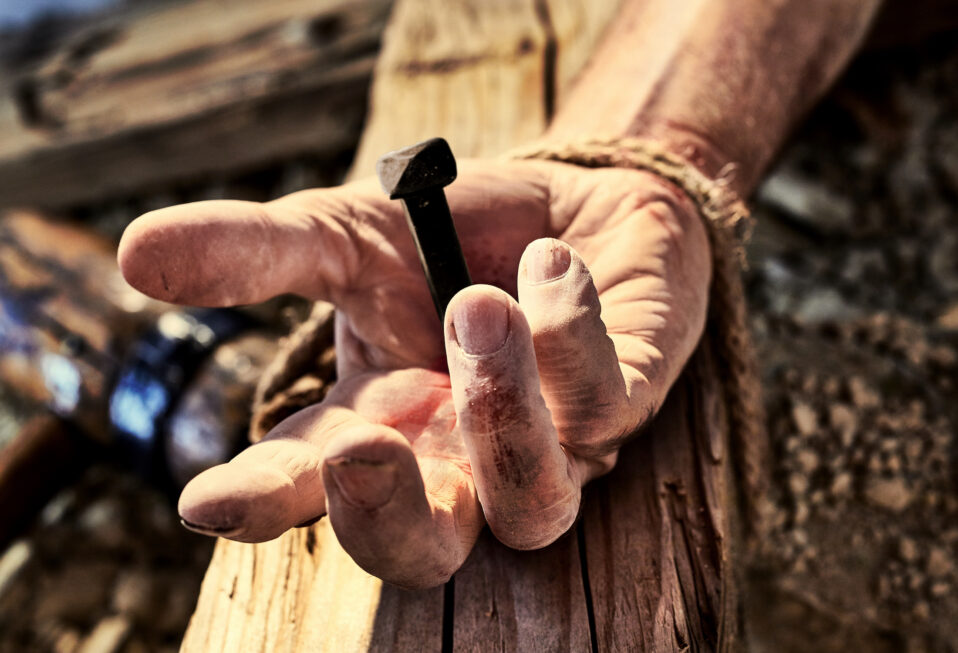The Gospel of Luke makes clear that the chief priests and their scribes sought to kill Jesus because He challenged those selling in the Temple, the economy the chief priests controlled (Luke 19:47). They could not openly attack Him because of His overwhelming popularity with the people (Luke 19:48). Throughout Jesus’ last week in Jerusalem, His teachings and actions criticized and challenged the corruption of the chief priests, the Sadducean aristocracy of Jerusalem (Luke 19:45-46; 20:1-40). His popularity with the masses protected Him against the chief priests (Luke 19:47-48; 20:19; 22:2).
The book of Acts portrays this same group as the opponents of the disciples in Jerusalem (Acts 4:1-7), who, like their master, enjoyed the favor of the Jewish masses. The Gospels relate how the chief priests, and the officers of the Temple used the cloak of darkness to arrest Jesus so they could conceal their actions from the Jewish people (Luke 22:52). Jesus pointed this out to them, “When I was with you day after day in the Temple, you did not lay hands on Me” (Luke 22:53). The crowds of Jerusalem never turned their backs on Jesus. Luke relates how the crowds mourned Jesus, upon seeing the Romans brutalize Him (23:27, 48).
The chief priests of Jerusalem controlled a monopoly. They set the prices for the sacrifices. Pilgrims were forced to pay these inflated prices since they could not bring their sacrifices from a distance. Jewish sources relate how on occasion sacrifices cost so much people could not participate in the Temple festivals, and Pharisaic leaders rebuked the chief priests for their greed (b. Baba Batra 3b-4a; m. Kerithoth 1:7).
Archaeological excavations in Jerusalem have uncovered high priestly homes which attest to the opulent and lavish lifestyle in which these priests lived. Jewish sources, like Josephus, portray the priests and their slaves as protecting their wealth and power with brutal action (see Mark 14:43). Jesus condemned the corruption of the chief priests publicly (Luke 19:46, 20:9-19).
He linked their corruption to the coming destruction of Jerusalem and its Temple. His was not the only voice criticizing the Jerusalem high priests in the first century. Many Jews were hopeful that He was the promised redeemer (see Luke 24:21). His popularity among the masses gave gravity to His condemnation of the chief priests. He had to be killed lest Caiaphas and the other chief priests lose their position and wealth (John 11:49-50).
It is a cruel tragedy of Christian history how the blame for the death of Jesus has been laid at the feet of the Jewish people, many of whom “hung upon His words” (Luke 19:48). The greed of a small group of the high priestly Jerusalem Sadducean aristocracy led to Jesus’ arrest and handing over to Pilate. They used the darkness of night to cover their clandestine activities from the site of the Jewish people (see Luke 22:52-53; Acts 5:27-28). They used their power and relationship with the Roman governor to ensure His death (see Luke 22:66; 23:10, 13, and 21; and John 19:6).
Their desire to protect their power and wealth motivated them to orchestrate Jesus’ death at the hands of the Romans. They are not alone in human history in perpetrating heinous actions motivated by a lust for money and power.
Marc Turnage is President/CEO of Biblical Expeditions. He is an authority on ancient Judaism and Christian origins. He has published widely for both academic and popular audiences. His most recent book, Windows into the Bible, was named by Outreach Magazine as one of its top 100 Christian living resources. Marc is a widely sought-after speaker and a gifted teacher. He has been guiding groups to the lands of the Bible—Israel, Jordan, Egypt, Turkey, Greece, and Italy—for over twenty years.
Website: WITBUniversity.com
Facebook: @witbuniversity
Podcast: Windows into the Bible Podcast




Post a comment